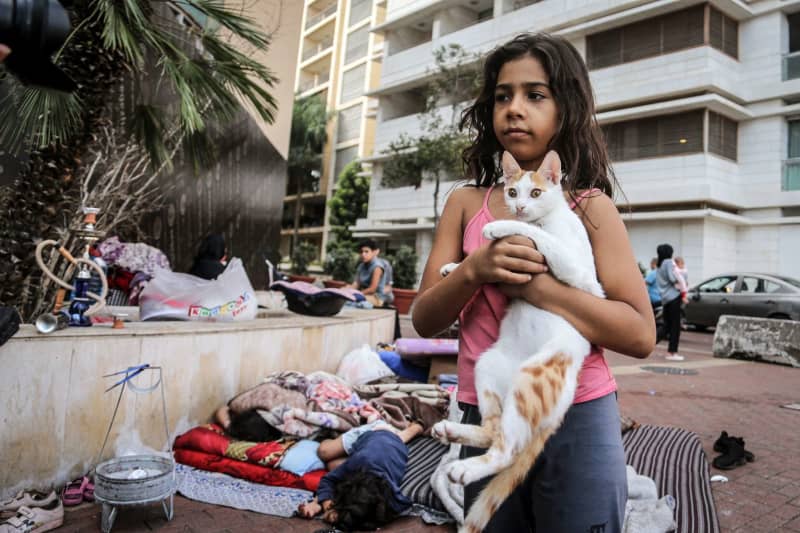The ongoing conflict between Israel and Hezbollah has escalated significantly in recent weeks, with the Israeli military urging Lebanese refugees to remain away from home due to continuing military operations in the region. This call to avoid returning home stems from the Israel Defense Forces’ (IDF) strategy of targeting specific villages in Lebanon amidst their military campaign, which has involved airstrikes and ground operations. The urgency of these warnings reflects the heightened tension caused by the recent flare-up of hostilities, particularly following Hamas’ unprecedented attacks on October 7, which triggered Israel’s military response in Gaza. The IDF has maintained an active presence along the Israeli-Lebanese border, directing evacuations in areas anticipated to be affected by upcoming airstrikes.
For nearly a year prior to the recent violence, the situation along the Lebanese border had already been tense with frequent cross-border clashes between Israeli forces and Hezbollah, the Iranian-backed militant group. These confrontations have increased in intensity as Hezbollah has expressed solidarity with Hamas amid the ongoing military actions in Gaza, complicating the already volatile situation. The IDF has reportedly made significant strides against Hezbollah, claiming to have decimated much of its leadership, which has implications for the power dynamics within Lebanon and the broader region.
The complexity of the conflict is exacerbated by the potential for a larger regional war. Israeli strikes in Lebanon come alongside retaliatory missile fire from Hezbollah targeting Israel, creating a cycle of violence that threatens to escalate further. Both sides are armed and increasingly willing to engage in hostilities, which raises concerns about the impact of this conflict on civilians in both Lebanon and Israel. Reports of civilian casualties and damage to infrastructure in both countries underline the devastating consequences of this military engagement, sparking international concern for humanitarian outcomes.
In addition to the military objectives that Israel pursues, the broader implications of regional alliances and enmities come into play. For instance, Iran’s involvement, evidenced by its support for Hezbollah and its attacks on Israeli territory, poses a significant challenge to stability in the region. This brings into question the responses of other countries in the Middle East and the international community as a whole, especially as they navigate a complex web of alliances and animosities that influence the likelihood of a sustained ceasefire or resolution.
As the situation develops, the calls from the Israeli military for residents in certain parts of Lebanon to evacuate point to a strategy focused on minimizing civilian casualties while striving to achieve military objectives. However, this approach also raises ethical concerns regarding the displacement of populations, particularly since many communities in Lebanon have already experienced the repercussions of extended military conflict. The plight of refugees and the ongoing struggles faced by civilians caught in the crossfire become pressing humanitarian issues that demand attention from global leaders.
In summary, the Israeli military’s warning to Lebanese refugees marks a significant moment within a broader context of escalating violence and geopolitical instability in the region. With ongoing confrontations between the IDF and Hezbollah, alongside the tenuous situation in Gaza, the possibility of a wider conflict looms large. The complexities of alliances, civilian safety, and humanitarian needs weave together to form a tragic tapestry of consequences resulting from the ongoing hostilities, emphasizing an urgent need for diplomatic intervention and a reassessment of strategies to achieve lasting peace.

